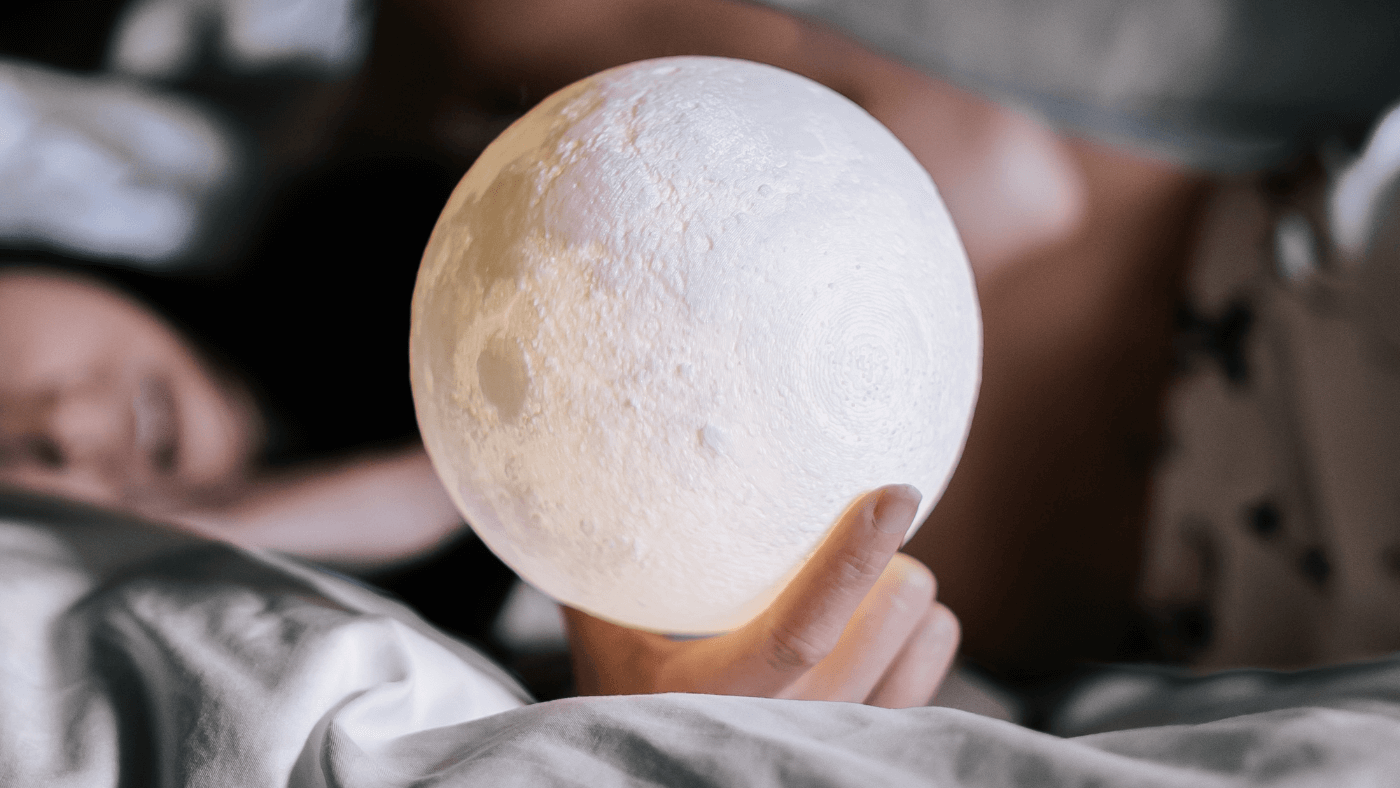What the moon has to do with your sleep and why magnesium can help with it
For centuries, the moon has fascinated us with its mysterious glow in the night sky. But did you know that the moon may also be affecting your sleep? New research suggests that the moon may be to blame for your problems falling asleep. Sounds exciting, doesn’t it?
In this article, you’ll learn more about how the moon affects our sleep and how the mineral wonder magnesium can help you with your sleep problems. Discover how you can enjoy a restful sleep despite the full moon. And if you need more tips for a deep sleep, also check out our article “The 6 best tips for a restful sleep”. Together, they will help you get the most out of your sleep and feel refreshed and full of energy in the morning.
The experiment: sleeping habits and the moon
Researchers from the University of Washington, the National University of Quilmes in Argentina and Yale University have studied people in a variety of communities, from indigenous villages to large cities. They tracked when people went to bed and how long they slept. And they discovered an amazing pattern. It had to do with how the moon can affect our time to fall asleep and sleep duration.
Before the full moon: later to bed and less sleep
The researchers found that in the days leading up to a full moon, people went to bed later and slept less. This pattern was independent of whether people had access to electricity or not. Even college students in a large city showed the same changes in their sleep habits.
The reason for the changes: Moonlight
But how can the moon affect our sleep? Researchers believe it has to do with moonlight. As the moon approaches full, it becomes brighter and is already high in the sky by late afternoon or early evening. That extra light in the early evening could throw off our natural sleep cycle.
Magnesium – helper for a good night
But don’t worry, there’s good news too! Magnesium, a mineral found in many foods, might help you with problems falling asleep on the full moon. Magnesium plays an important role in relaxing muscles and nerves, and that can help you fall asleep easier.
If you want to learn more about the different ways magnesium can improve your sleep quality, read our article “The magnesium effect: 9 reasons why you should love the mineral.” If, on the other hand, you tend to suffer from sleep disorders and would therefore like to find out more about magnesium deficiency and its causes and solutions, we recommend our article “Magnesium deficiency: causes, symptoms and solutions.” These two sources offer deeper insights into the importance of magnesium for healthy sleep and how you can prevent possible deficiency symptoms.
Tips for your magnesium intake
Magnesium is found in many foods that you surely already know and like. Here are some examples:
- Bananas: This delicious fruit contains a lot of magnesium and is also a great snack before bedtime.
- Nuts: Almonds and cashews are not only delicious, but also a good source of magnesium.
- Dark chocolate: Yes, you heard right! Dark chocolate in moderation can also give you a small dose of magnesium.
- Leafy vegetables: Spinach and kale are not only healthy, but also contain plenty of magnesium.
- Organic food supplement: the Calm A Lama Plant-Based Magnesium by Ogaenics is derived from organic algae and is 100% plant-based.
Conclusion
The moon remains a fascinating phenomenon that could not only affect our sleep, but also raises many questions. Researchers aren’t yet sure exactly how the moon affects our sleep, but they’re excited to continue exploring what’s behind this mystery.
In the meantime, you can use magnesium to help alleviate your problems falling asleep and enjoy a restful night’s sleep. You can pay more attention to magnesiumine in your diet or supplement it with a good herbal supplement. And keep an eye out for the next full moon. Who knows, you might discover the changes in your sleep habits yourself!
“Moonstruck sleep: Synchronization of human sleep with the moon cycle under field conditions.”
Casiraghi, Leandro et al. , Science advances vol. 7.5 eabe0465. 27 Jan. 2021





 No products in the cart.
No products in the cart.